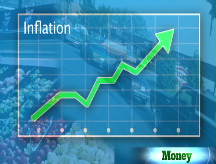Good buys in bond funds
Though bonds have taken a disheartening beating, some analysts point to a buying opportunity ahead. You just have to be patient.
(Money Magazine) -- If you were counting on your fixed-income funds to prop you up in tough times, it's been a cruelly disappointing year. Although the news headlines focus on falling stocks, the fear of bad credit is at the heart of this financial crisis - and a bond, after all, is nothing but a loan.
Every category of bond fund is down in 2008, making this one of the worst years ever for bond investors. While disheartening, the beating that bonds have taken has some analysts pointing to a buying opportunity - if you're patient.
Here's the lowdown on bond funds by category, with a few picks from the Money 70, Money magazine's list of low-cost recommended funds.
2008 Total return: -0.51%
What went wrong: Nothing. Investors did what you'd expect. They flocked to Treasuries during this panic, counting on Uncle Sam as the one debtor sure to pay back. The result: Government bond funds are holding their value, but 10-year Treasury yields have fallen below 4%.
What's ahead: Most Treasuries aren't bargains now, with one exception: Treasury Inflation-Protected Securities. They're priced to beat regular Treasuries if inflation tops a mere 0.8%. From an inflation standpoint, "TIPS have the most attractive valuations since they were first issued in the late '90s," says Brian Brennan of T. Rowe Price.
Money 70 pick: iShares Lehman TIPS Bond (TIP)
2008 Total return: -7.47%
What went wrong: In a crisis, investors tend to embrace the bonds of high-quality firms. Today the strongest outfits aren't even trusted. "The markets have savaged anything with a whiff of credit risk," says Rob Arnott of Research Affiliates.
What's ahead: Be patient. Confidence will eventually return, especially after investors realize that investment-grade bonds are yielding 8.9% - five points more than 10-year Treasuries. Given the economy, Osterweis bond fund manager Carl Kaufman says stick with the highest-quality bonds and also intermediate-term bonds, in case inflation returns.
Money 70 pick: Harbor Bond (HABDX)
2008 Total return: -5.51%
What went wrong: Investors are worried about tax shortfalls hitting cities and states, thanks to falling property values and a slowing economy. So they've lost their appetite for municipal debt - even triple-A-rated bonds.
What's ahead: Because of their tax-exempt status, munis typically yield about a fifth less than Treasuries. Today they're paying around one percentage point more - before taxes. But aren't default risks rising? Yes, but "even in the Depression, very, very few municipalities defaulted," says Christopher Vincent of the William Blair Funds. Just be diversified and stick with high-quality munis.
Low-cost pick: Vanguard Intermediate-Term Tax-Exempt (VWITX)
2008 Total return: -23.18%
What went wrong: By definition, issuers of high-yield - or "junk" - bonds have poor credit. Not an attractive feature today. Prices have fallen so much that you can get yields of 19%, if you want to gamble. Junk bonds tend to pay five points over Treasuries. The spread is now triple that.
What's ahead: Even so, don't take the gamble on these bonds. Sometimes yields are ridiculously high for a reason. "We're still in the early innings of an economic slowdown," says Lawrence Jones, associate director of fund analysis at Morningstar. "So it's probably not the best time to be investing heavily in high yield."
NOTES: Figures shown represent average year-to-date total returns for mutual funds in each fixed-income category. Data through Nov. 7. SOURCE: Morningstar. ![]()



